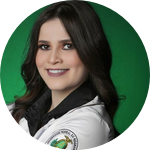About This Project
Vaccines to combat SARS-CoV-2 infection lose their effectiveness when the virus undergoes new mutations. Here, we will help circumvent this reality by developing a prototype vaccine that has the potential to be effective in the post-Omicron era after identifying structural patterns that are repeated in all known variants of concern (and Omicron subvariants) to date. We will evaluate more than 475 fully sequenced genomes containing a total of 1,900 sequences of SARS-CoV-2 viral proteins.
Ask the Scientists
Join The DiscussionWhat is the context of this research?
The spike protein is the focus of the overwhelming majority of COVID -19 vaccines because it is the part of the virus that allows it to enter our cells. The three most advanced vaccines (from Oxford/AstraZeneca, Pfizer/BioNTech, and Moderna) all work by inducing our own cells to make copies of the viral spike protein. However, the SARS-CoV-2 virus is more complicated than just one spike protein. There are four different proteins that make up the overall structure of the viral particle: spike, envelope (E), membrane (M), and nucleocapsid (N). In a natural infection, our immune system recognizes all of these proteins to varying degrees. Therefore, we would like to develop a vaccine that triggers an immune response that attacks the virus on different fronts.
What is the significance of this project?
The major vaccines being studied in clinical trials appear to be safe and effective means of preventing severe COVID-19, but the quality of evidence varies widely by vaccine type. Questions remain regarding booster vaccination and waning immunity, duration of immunity, and heterologous vaccination. Unfortunaly, the emergence of SARS-CoV-2 variants could jeopardize the global impact of mass vaccination campaigns, because it is already known that this is the reason for the failure of most vaccines against viruses. In this context, a vaccine prototype from conserved structural patterns of the different viral strains validated by a robust molecular modeling methodology will open a pathway for the development of vaccines with more durable efficacy and high population coverage.
What are the goals of the project?
Our goal is to use a consistent molecular modeling methodology to develop a vaccine that can neutralize not only all previously described variants (and subvariants) of SARS-CoV-2, but also other mutant strains of the post-Omicron era. To this end, we will: [i] identify structural patterns of SARS-CoV-2 proteins from 475 genomes; [ii] screen the best B-cell/CTL/HTL epitopes with filters for antigenicity, immunogenicity, allergenicity, toxicity, IFN gamma-inducing activity, population coverage, and conservation; [iii] develop a multi-epitope subunit vaccine; [iv] ensure cloning and expression efficiency; [v] finally, evaluate the synthesis of immunoglobulins, cytokines, and interleukin and thus the consistency of the immune response elicited by the prototype vaccine.
Budget
Although we have the computing infrastructure of the NPAD - Nucleus of High Performance of the UFRN, it is used by more than 450 researchers directly and indirectly connected to all centers and academic units of the UFRN. The server we will acquire will reduce the need to use the resources of the NPAD/UFRN supercomputer, saving time in the queue and allowing us to use our own laboratory for future research, e.g. with the monkeypox virus (future research).
Endorsed by
 Project Timeline
Project Timeline
As mentioned earlier, one of the biggest challenges is the waiting time to use the high performance computing cores of the NPAD/UFRN computing infrastructure. The acquisition of the proposed server will allow this research to be developed in record time, since we already have the complete and recently validated methodological protocols.
Jul 21, 2022
Project Launched
Aug 22, 2022
Expected fund incoming
Sep 19, 2022
High performance server acquisition
Sep 26, 2022
Obtaining the protein sequences
Oct 03, 2022
Prediction of T-cell epitopes
Meet the Team
Affiliates
Affiliates
Affiliates
Prof. Dr. Jonas Ivan Nobre Oliveira
Biomedical scientist with a master's degree in biological sciences and a doctorate in biochemistry and molecular biology. Associate Professor at the Department of Biophysics and Pharmacology at the Federal University of Rio Grande do Norte / Brazil. Scientific productivity scholarship researcher of the National Council for Scientific and Technological Development (CNPq/Brazil) with experience in molecular modeling of biological problems and focus on the following areas: (i) quantum biochemistry of ligand-receptor interaction; (ii) structural and energetic stability of biocomplexes; (iii) electronic transport in biomolecules; (iv) optical, electronic and thermodynamic characterization of chemical molecules; (v) prediction of pharmacokinetic and toxicological properties of bioactive compounds; (v) identification of target epitopes for the development of diagnostic platform and vaccines; (vi) immunoinformatics, homology modeling, docking, QM / MM and molecular dynamics of biological structures. Reviewer for 06 scientific journals and 03 research funding organizations. As of July 2022, he has published a total of 45 scientific articles / patents (330 citations) and supervised 22 students in science initiation, master or PhD projects. For a more detailed description, please visit:
SCHOLAR profile - https://bit.ly/3tpwxER
UFRN profile - https://sigaa.ufrn.br/sigaa/pu...
CNPQ profile - http://lattes.cnpq.br/2461374517882321
Maria Karolaynne da Silva
Since 2019, my research focus has been on the description of peptide sequences (antigens) for use in viral vaccines and immunodiagnostic tests. To this end, I screened the amino acid sequences of the structural and non-structural proteins of the viral model (under study) to obtain the antigenicity, allergenicity, immunogenicity, toxicity, epitope conservation, population coverage, and physicochemical properties. After identifying the major epitopes, I modeled their optimal spatial conformations and several vaccine prototypes. The tertiary structure of the epitopes and/or vaccine is refined and validated. Through docking experiments, we assessed molecular coupling to key immune receptors. To improve the quality of docking calculations, quantum mechanics/molecular mechanics calculations (QM/MM) were used, with the QM part of the simulations performed using the density functional theory formalism (DFT). Cloning and codon optimization were performed for successful expression of the vaccine in E. coli. Finally, I studied the immunogenic properties and immune response of the multiepitope vaccine.
CNPQ profile: http://lattes.cnpq.br/50606308...
Linkedin: https://www.linkedin.com/in/ka...
Daniel Melo de Oliveira Campos
Biomedical scientist with a master's degree in biological sciences. I am currently PhD student in biochemistry and molecular biology at the Department of Biophysics and Pharmacology at the Federal University of Rio Grande do Norte / Brazil, and also Director of Cultural and Scientific questions of the "Associação de Biomedicina do Rio Grande do Norte" (ABRN). Since 2018, performs structural studies based on quantum mechanical calculations (QM) to analyze the intermolecular binding energies between the crystallographic structure of viral proteases with potential inhibitors. For this, are used the molecular fractionation with conjugate caps (MFCC) scheme within the density functional theory (DFT) formalism describes in detail the energies of the complex.
SCHOLAR profile: https://scholar.google.com.br/...
CNPq profile: http://lattes.cnpq.br/9298368233770302
Additional Information
This is the first study that has considered such a large amount of protein data, namely 475 proteomes of the major circulating SARS-CoV-2 variants, including 38 (16) reported nonsynonymous mutations found in the protein spike (nucleocapsid phosphoprotein). It is also the only multi-epitope vaccine prototype consisting of B-cell and T-cell epitopes of all structural polyproteins of this virus, developed using hybrid quantum mechanical/molecular mechanical approaches. In addition, the current immunogenic profiles and immune response of the vaccine prototype will be characterized.
All scientific articles produced after the completion of this project will be made fully available to collaborators, including explanatory notes.
Your support will help us to help others.
Thank you
Project Backers
- 1Backers
- 3%Funded
- $100Total Donations
- $100.00Average Donation




